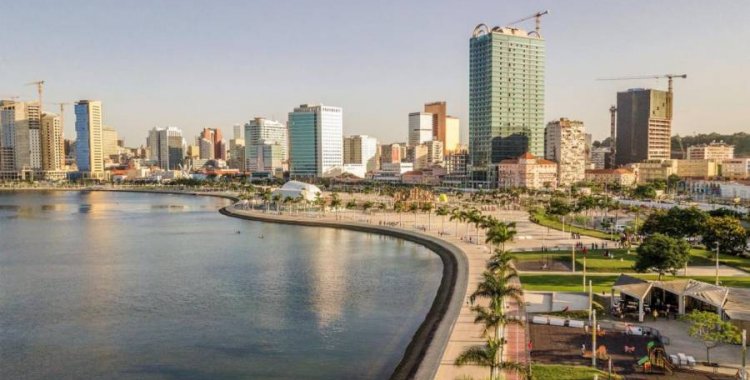According to Flávio Inocêncio, the crisis, which results from Russia's military offensive in Ukraine, is "good news" for Angola as a result of the exponential increase in the price of oil, the African country's main export product.
"We are going to follow the evolution of the crisis very carefully, but for now for Angola it is good news in the sense that our main export product will have an exponential increase, since our OGE (General State Budget) was prepared in basis of 59 dollars a barrel", said the expert to Lusa.
Inocêncio admits that world demand for oil, the mainstay of the Angolan economy, could also have repercussions on basic food products imported by Angola, "since we have already started to see an increase in agricultural 'commodities'".
The oil and gas consultant recalled that Russia and Ukraine are the world's largest producers of wheat and other food products and, he noted, unless the crisis is resolved, "the rise in prices will also have a negative impact on agricultural products".
"But, as a rule, looking at the price of oil and 'commodities' in general, for Angola we will have growth this year between 3 and 4 percent, it will largely depend on the evolution of the oil price and the responses to this geopolitical crisis", he stressed.
"For now, it is not known which way it will lean, but regardless of whether there is a resolution or not, the trend was upwards for this year, and for Angola this is good news", he stressed.
The Angolan authorities estimate for this year a growth of the Gross Domestic Product (GDP) of 2.4 percent. Angola, the second largest oil producer in sub-Saharan Africa, exported 394.22 million barrels of crude oil in 2021.
The price of a barrel of oil should reach 120 and 130 dollars in the expert's opinion.
Russia launched a military offensive in Ukraine early Thursday, with ground forces and bombing targets in several cities, which have killed more than 350 civilians, including children, according to Kiev. The UN reported nearly 500,000 displaced people to Poland, Hungary, Moldova and Romania.
Russian President Vladimir Putin said that the "special military operation" in Ukraine aims to demilitarize the neighboring country and that it was the only way for Russia to defend itself, with the Kremlin specifying that the offensive will last as long as necessary.
For Flávio Inocência, also a professor of Oil and Gas Law, the crisis, caused by the Russian offensive, lists several factors, namely the "aggregate demand for oil has already reached pre-pandemic levels since 2019".
"Therefore, there is already pressure on the aggregate demand side for oil and there is also downward pressure on the supply side, it means that there was not a large capacity and there is no way to expand the world supply of oil even before this crisis," he said.
"To also say that oil storage 'stock' levels are low, which means that the sale of oil stored in strategic oil reserves, which most OECD countries have, will have a very limited effect, on the futures market price, which means that there is a shortage of products", he pointed out.
The "high of all 'commodities'" worldwide was also highlighted by the specialist, noting that natural gas "has also been rising in recent months, precisely due to the aggregate demand for electricity".
"As there is a substitution of natural power stations for coal gas all over the world this has also had an effect on aggregate demand for oil," he underlined.
The ability of OPEC (Organization of Petroleum Producing Countries) to affect oil prices "is limited as OPEC will have a maximum of two to three million barrels of extra capacity".
And that, he noted, "is going to have a very limited effect in 2022, particularly with sanctions applied to Russia."
"Therefore, we have already seen, this Monday, a very large increase in the price of oil, at the moment the crude traded in London is around 103 dollars a barrel", he added.
With these sanctions added, he predicts "that this value could go up to 120 to 130 dollars per barrel" and "there are also other factors such as the very limited ability of American shale oil to expand contrary to 2014".
"We are also seeing a period of very high inflation that will start to increase more and more with this Ukrainian crisis, because Russia is one of the main exporters of agricultural and non-agricultural 'commodities'", he pointed out.
In the opinion of Flávio Inocêncio, the current scenario translates into a "perfect storm for an increase in the price of oil, not what happened in 2014, which was the opposite".
"And, therefore, the markets are reacting higher, essentially for 'commodities', and we start to see in all the stock exchanges the stocks to fall, unless there is a quick resolution of this conflict, we predict that quickly the price will reach 120 or 130 dollars per barrel", reaffirmed the specialist, also a doctor of law.
The Russian attack was condemned by the international community at large and the European Union and the United States of America, among others, responded by sending weapons and ammunition to Ukraine and strengthening sanctions to further isolate Moscow.







